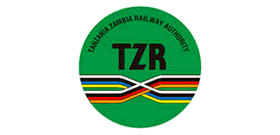 TAZARA cooperates with Zambia Railways Ltd to transport 160,000 tons of maize
TAZARA cooperates with Zambia Railways Ltd to transport 160,000 tons of maize
We are thrilled to announce that the Tanzania-Zambia Railway Authority (TAZARA), a significant entity in the regional transportation landscape, has forged a strategic partnership with Zambia Railways Ltd and Calabash Freight Ltd. The primary objective of this alliance is to oversee the transportation of an impressive volume of maize, specifically over 160,000 metric tons, from the Tanzanian locales of Makambako and Vwawa to Kalomo, situated in Zambia.
This substantial operation is a key component of a broader initiative undertaken by the Zambian government. The government has embarked on the procurement of a whopping 650,000 metric tons of maize from Tanzania, an endeavor aimed at strengthening the nation's food security. The agreement for this procurement was formally inked on 29 June 2024 in Dar es Salaam, the capital city of Tanzania.
The parties involved in the signing were the National Food Reserve Agency of Tanzania and the Food Reserve Agency of Zambia, both of which are pivotal agencies in their respective countries' food security plans. TAZARA's Managing Director, Eng. Bruno Ching’andu, voiced his commitment to this project. He stated, “We are committed to supporting the Zambian government’s efforts to secure maize supply and enhance food security in Zambia, which was recently affected by the drought that hit most parts of Southern Africa.” This statement highlights TAZARA's resolve to play a central role in tackling the food security issues that Zambia is grappling with. Eng. Ching’andu also shed light on the operational strategy for this project.
The three companies participating in this collaboration will combine their resources, including locomotives and wagons, to ensure the efficient transportation of the maize. The strategy is to transport at least 20,000 metric tons per month over the forthcoming eight months, underscoring the magnitude and ambition of this operation. This collaborative effort serves as a sterling example of the potential of partnerships in the railway sector. It illustrates how railway alliances can effectively surmount logistical hurdles and guarantee the prompt delivery of essential commodities. This operation is not merely about moving maize; it's about safeguarding food security in a region that requires it, highlighting the crucial role that railway companies can fulfill in addressing larger societal challenges.
